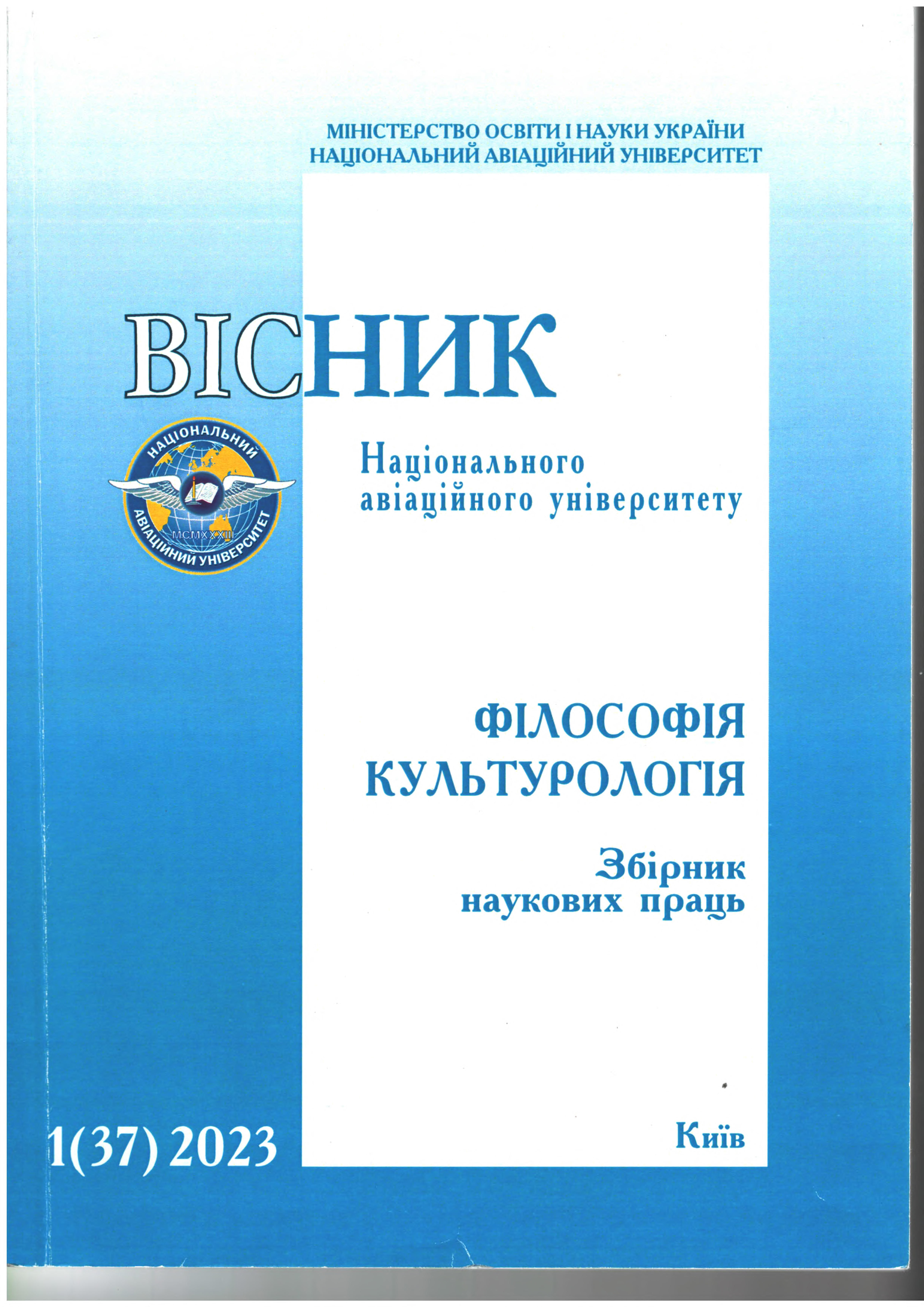TRANSFORMATION OF MAN’S EDUCATION IN THE XXI CENTURY: THE ROLE OF SOCIAL PROJECT
DOI:
https://doi.org/10.18372/2412-2157.37.17589Keywords:
соціальне проєктування, глобалізований світ, цінності, цифровізація, інформаційні технології, мережеве суспільство, освітаAbstract
Introduction. The development of scientific knowledge and the emergence of new interdisciplinary fields of research was also reflected in
the field of education, in particular, the training of specialists in social project. The aim is an analysis of the impact of social project on the
field of education to overcome global challenges people of the ХХІ century facing. Research methods include: analytical-descriptive and
sociocultural method, principles of historicism, unity of historical and logical. The comparative approach helps to compare the predictions
and premonitions of researchers regarding the new conditions of human education in the globalized world with the help of the universal
technology of social projection. Research results. Researchers of T. Butchenko, T. Kostieva, O. Antonova approach the definition and role
of project in the social life of mankind in different ways. A. Semez believes that social project can be attributed to innovative activity. In the
works of J. Baudrillard, Y. Habermas, O. Goefe and others the reasons for the emergence and the need for the development of social
projecting as a productive activity of people in the society of the XX-XXI centuries are represented. Modern man needs to rethink the
consequences of his activities in nature and be more responsible for creating social projects to correct his mistakes and preserve life on the
planet. Socio-pedagogical projects directly depend on national planning, when all the rights and responsibilities of citizens are established
constitutionally and legislatively. Discussion. Attention is focused on the fundamentalism of legal relations in society, which is a necessary
condition for the positive implementation of any social project. The presence of risks in the globalized world due to the dangerous influence
of scientific and technological progress on the life of mankind is emphasized. The role of knowledge and values in socio-pedagogical design
of the 21st century is noted. Conclusions. Considering a social project as a method of organizing the space of culture, and social projecting
as a specific type of creative activity of an individual, one should take into account their influence on the educational space of a person. At
the base of any culture, there is a value-normative system. The fragmentary perception of the world by modern people, the weak regulation
of their behavior by tradition, etc., contributes to negative scenarios for the future. Therefore, the question arises of actualizing the highest
universal ideals and values for the preservation of man, revealing his creative abilities in all types of social project. Only in the rule of law,
educational projects will gradually contribute to the liberation of humanity from illusory values. The complexity of the globalized world with its
network structure of society can contribute to the suppression of the will of many people. Therefore, the XXI century needs a new type of
person with dominant features of spirituality, who will be able to live harmoniously on our planet, adapting to rapid changes both in the
natural environment and in society in general.
References
Habermas, Jürgen. 2004. Teorien om den kommunikative
handlen. Aalborg Universitetsforlag. 543 s.
Baudrillard J. La société de consommation: ses mythes, ses
structures. S.G.P.P., 1990. Р. 318.
Антонова О. В. Соціальне проектування в теорії держав-
ного управління. Державне управління та місцеве
самоврядування. Дніпропетровськ: ДРІДУ НАДУ. 2009 С. 3–12.
Біла О. О. Соціально-педагогічне проектування в закладах
дошкільної, початкової та позашкільної освіти (контекст
університетської підготовки соціономістів). Нав. Посіб. Одеса:
«Астропринт», 2019. 178 с.
Бутченко Т. І. Соціальне проектування: проблема
взаємозв’язку суспільних потреб і державних інтересів :
автореф. дис. д-ра філос. Наук : 09.00.03. Дніпропетровськ:
Дніпропетровський національний університет імені Олеся
Гончара, 2011. 37 с. .
Бутченко Т. І. Зміст поняття «проектування». Гуманітарний
вісник ЗДІА. № 37. К: ЗДІА, 2009. С. 144–154.
Дротянко Л. Г. Етнокультурний фактор міжцивілізаційних
відносин ХХ-ХХІ століть. Вісник Національного авіаційного
університету. Серія: Філософія. Культурологія: Збірник
наукових праць. № (2) 36. К.: НАУ, 2022. С. 5-10.
Костєва Т. Б. Особливості технології проектування в
соціальній сфері. Наукові праці Чорноморського державного
університету імені Петра Могили комплексу «Києво-
Могилянська академія». Серія : Педагогіка. 2016. Т. 270. Вип.
С. 47–51.
Крупник А. С. Соціальне проектування у державно-
управлінській практиці: концептуальний підхід. Ефективність
державного управління: Зб. наук. праць ЛРІДУ. Вип. 8. Львів:
ЛРІДУ НАДУ, 2005. С. 71-78.
Орденов С. С. Політико-правовий вимір міжцивілізаційних
викликів глобалізованого світу. Вісник Національного авіацій-
ного університету. Серія: Філософія. Культурологія: Збірник
наукових праць. № (2) 36. К.: НАУ, 2022. С. 50-57.
Семез А. А. Соціально-педагогічне проектування. Нав.-
методич. Посіб для студентів вищих педагогічних закладів.
Кіровоград: РВВКДПУ, 2012. 132 с.
Сухова Н. М. Людина в часи міжцивілізаційних викликів
глобалізованого світу. / Н.М. Сухова. Вісник Національного
авіаційного університету. Серія: Філософія. Культурологія:
Збірник наукових праць. № (2) 36. К.: НАУ, 2022. С. 62-67.
Шавріна І. В. Глобалізаційні процеси і проблема буття
людини у світі. Вісник Національного авіаційного універси-
тету. Серія: Філософія. Культурологія: Збірник наукових
праць. № (2) 36. К.: НАУ, 2022. С. 74-77.
Шаповалова О. А. Філософська рефлексія феномену
соціального проекту. Вісник Національного технічного
університету України «КПІ». Філософія. Психологія. № (1) 40.
К.: КПІ, 2014. С. 66-71.

